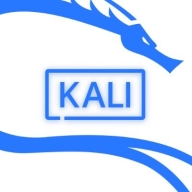

Kali Linux and Debian operate within the open-source operating systems category. Debian often has the advantage for broad applications due to its versatility and stability, whereas Kali Linux excels in security-specific tasks.
Features: Kali Linux is tailored for penetration testing and cybersecurity, incorporating over 600 security utilities, streamlined installation for security tools, and focused community support for security professionals. Debian is renowned for its robust server capabilities, extensive software repository, and stability, which make it optimal for a variety of applications ranging from personal use to enterprise-level deployments.
Ease of Deployment and Customer Service: Kali Linux has a streamlined deployment process with pre-installed security tools, making it convenient for quick setups. It provides targeted support that caters to its niche focus on security. Debian, while offering complex configuration options, is backed by a large support community that aids in troubleshooting across different use cases and enhances overall user experience through shared expertise.
Pricing and ROI: Both Kali Linux and Debian are open-source with no licensing fees, providing cost-effective entry points for users. Kali Linux offers immediate ROI, particularly for those in specialized security environments. In contrast, Debian delivers long-term value across diverse sectors through its wide compatibility and robust performance, proving beneficial for extended use beyond initial deployment.

Debian is a versatile and reliable operating system widely used for personal computers, servers, and embedded devices. It offers stability, security, and extensive software packages to meet the needs of developers, businesses, and enthusiasts.
Known for its robustness, Debian supports a wide range of hardware architectures, making it suitable for both desktop and server environments. It provides a comprehensive repository of open-source software, allowing users to tailor the system to their specific requirements. Its strong focus on security ensures timely updates, keeping systems protected against vulnerabilities. Debian's community-driven development ensures transparency and continuity, contributing to its reputation as a dependable choice in various computing environments.
What are the most important features of Debian?
What benefits can users expect from Debian?
In the tech industry, Debian is frequently deployed in server environments thanks to its stability and security. Educational institutions often use it for educational labs due to its cost-effectiveness and flexibility. It is also popular in embedded systems for its lightweight and customizable nature, allowing for tailored solutions in IoT and automation sectors.
Kali Linux is widely used by organizations for penetration testing, vulnerability assessments, web application security, network audits, ethical hacking, and open-source intelligence, providing extensive free features.
Organizations run Kali Linux in virtualized environments alongside other operating systems, employing tools for automated scans, malware identification, infrastructure testing, and application development or hosting. These users benefit from lower maintenance requirements and a smaller footprint. The toolset includes Nmap, SQLMap, Metasploit, and Hydra, ensuring effective security assessments. Its high scalability, performance, user-friendly interface, and extensive documentation enhance the platform's usability. Known for stability, flexibility, and virus resistance, Kali Linux supports web security, troubleshooting, and configuration tasks comprehensively.
What are the most important features of Kali Linux?Kali Linux can support industries in improving security through stable and flexible environments that resist viruses and provide extensive documentation. Users employ it for web security, troubleshooting, and configuring capabilities. Necessary improvements include automation, user-friendliness, and integrating AI and blockchain. Enhancements in security features, faster installations, and better learning tools are also essential. Machine learning integration and non-enterprise user functionalities can address current limitations.
We monitor all Operating Systems (OS) for Business reviews to prevent fraudulent reviews and keep review quality high. We do not post reviews by company employees or direct competitors. We validate each review for authenticity via cross-reference with LinkedIn, and personal follow-up with the reviewer when necessary.